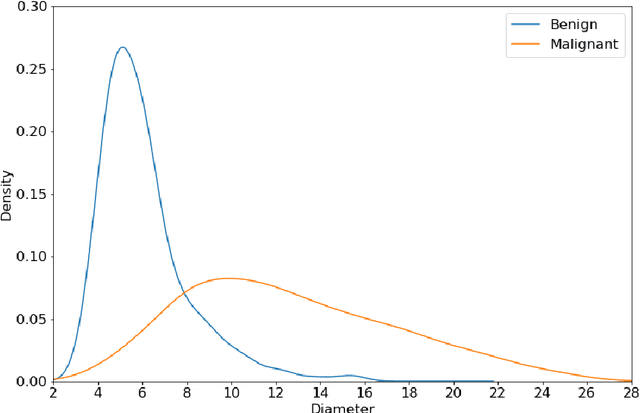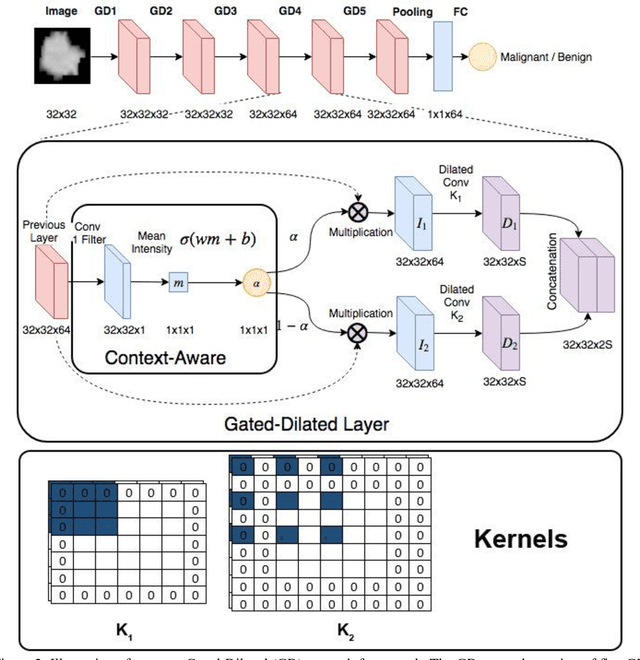Gated-Dilated Networks for Lung Nodule Classification in CT scans
Paper and Code
Jan 01, 2019



Different types of Convolutional Neural Networks (CNNs) have been applied to detect cancerous lung nodules from computed tomography (CT) scans. However, the size of a nodule is very diverse and can range anywhere between 3 and 30 millimeters. The high variation of nodule sizes makes classifying them a difficult and challenging task. In this study, we propose a novel CNN architecture called Gated-Dilated (GD) Networks to classify nodules as malignant or benign. Unlike previous studies, the GD network uses multiple dilated convolutions instead of max-poolings to capture the scale variations. Moreover, the GD network has a Context-Aware sub-network that analyzes the input features and guides the features to a suitable dilated convolution. We evaluated the proposed network on more than 1,000 CT scans from the LIDC-LDRI dataset. Our proposed network outperforms baseline models including conventional CNNs, Resnet, and Densenet, with an AUC of >0.95. Compared to the baseline models, the GD network improves the classification accuracies of mid-range sized nodules. Furthermore, we observe a relationship between the size of the nodule and the attention signal generated by the Context-Aware sub-network, which validates our new network architecture.
 Add to Chrome
Add to Chrome Add to Firefox
Add to Firefox Add to Edge
Add to Edge